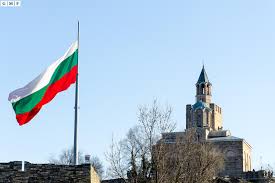Bulgaria’s political impasse complicates its relations with Brussels

Sofia: One of Bulgaria’s top issues is joining the eurozone. Sofia hopes to join the single currency in 2025, but the political difficulties of recent years make this unlikely.
Concerns are growing over political instability in Bulgaria, which could disrupt several ongoing negotiations with the European Union.
Following Monday’s announcement of early parliamentary elections, the seventh in three years, questions are being raised regarding who will next occupy the position of Bulgaria’s Commissioner, an appointment due by the end of the month.
Former Bulgarian Deputy Foreign Minister Milen Keremedchiev said he expected the election battles that have started in the EU to have an impact on the choice of Commissioner.
“In my opinion, it will probably come to the decision that current Commissioner Iliana Ivanova will be the new candidate,” he said.
One of Bulgaria’s top issues is joining the eurozone. Sofia hopes to join the single currency in 2025, but the political difficulties of recent years make this unlikely.
“The plan was for Bulgaria to join the eurozone on 1 January 2025. This now seems to be an illusive target. The report submitted by the European Commission was not positive,” explained Dimitar Bechev, Senior Fellow at the Carnegie Europe think tank.
“The inflation target hasn’t been met, and the caretaker government probably won’t have the political muscle to bring those figures under control,” Bechev added.
Bulgaria could also face problems obtaining the funds allocated to it as part of the European recovery plan following the COVID-19 pandemic. The payments come with milestones that governments must meet.
But Bechev said the political instability should not cast doubt on the agreement on the partial entry of Sofia into the Schengen area. Since 31 March, there are no longer any controls at the air and sea borders between Bulgaria and other member states in the European free movement area.
Bulgaria’s populist right-wing There Is Such a People (ITN) party returned the third government-forming mandate to President Rumen Radev on Monday after coalition talks failed, triggering a new snap election.
This will be the seventh early vote in just over three years. Of the six elections held since 2021, only two have resulted in an elected government.
Bulgaria has been plagued by revolving-door governments since 2020, when anti-corruption protests toppled a coalition led by the centre-right GERB party.





